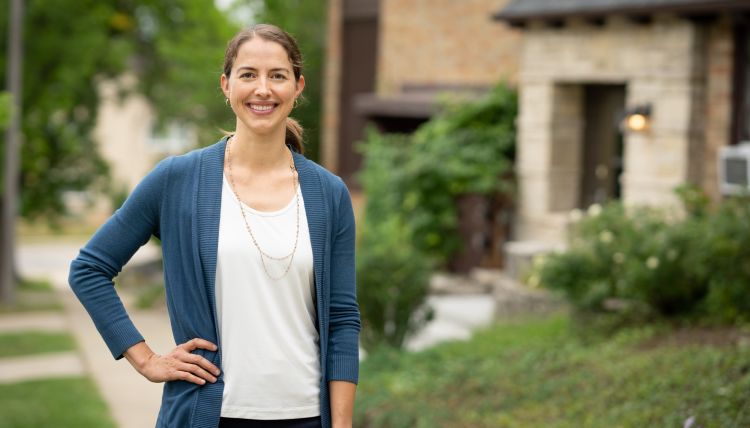Ann Braus, MD, becomes a Certified Medical Director

As a trainee in a nursing home, Ann Braus, MD, clinical assistant professor, Geriatrics and Gerontology, noticed variation in how patients were cared for and the quality of operations throughout different facilities and wondered why that was. Now, her recent training to become a Certified Medical Director (CMD) will allow her to address this variance to improve the quality of care and assess needed changes at nursing homes.
The certification, obtained through the Society for Post-acute and Long-term Care Medicine, requires medical directors to participate in 20-30 hours of online lectures, attend an in-person conference and be a medical director for at least two years.
Although it’s not necessary for medical directors to have this certification, Dr. Braus explains that the program is designed to help them understand the unique aspects and organizational dynamics of long-term care facilities like nursing homes.
“Nursing home care is really unique. They’re bound by a lot of bureaucratic rules and regulations through Medicare and Medicaid that hospitals and clinics aren’t bound to,” Dr. Braus says.
Because of this, nursing home medical directors need to have specific knowledge about the facility’s operations and administration in order to maximize the quality of patient care.
Dr. Braus feels like this certification gave her an extra set of tools to work with.
“The certification program helped me think about how we examine a problem and identify what needs to change and how to apply change in nursing homes,” she says.
As a CMD at Capitol Lakes Skilled Nursing and Rehabilitation, Dr. Braus created the Readmission Reduction Committee to examine rehospitalization rates of their patients and identify if there was anything that could have been done differently to prevent rehospitalization.
“This committee helps us reassess our processes and protocols…there’s been so many opportunities for improvement that have come out of it,” she says.
Some of these opportunities include monitoring weights for patients with congestive heart failure more closely, changing diabetes protocol to improve monitoring of blood sugars and improving communication with hospitals during patient transitions.
Dr. Braus looks forward to continuing to make improvements at Capitol Lakes such as working on antibiotic stewardship and reviewing polypharmacy, the simultaneous use of multiple drugs by a single patient, for one or more conditions.
“There’s always a number of opportunities to improve our patient’s quality of care,” she says.
Banner: Ann Braus, MD. Credit: Clint Thayer/Department of Medicine.